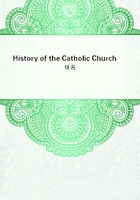
第83章
After the death of Urban VII., Gregory XIV., and Innocent X., who followed one another in rapid succession, a large number of the cardinals, determined to put an end to the dominating influence of Spain, put forward as the candidate of their choice Cardinal Aldobrandini, whose election had been vetoed twice before by the Spanish representatives. Notwithstanding the opposition of Spain they succeeded in their effort, and Cardinal Aldobrandini was proclaimed under the title of Clement VIII.[7] (1592-1605). The character of the new Pope both as a man and an ecclesiastic was beyond the shadow of reproach. He was the special disciple and friend of St. Philip Neri who acted as his confessor for thirty years. As Pope his choice of a confessor fell upon the learned and saintly Baronius whom he insisted upon creating cardinal. His activity and zeal were manifested soon in the visitation which he undertook of the churches and institutions of Rome, and during the course of which he suppressed many abuses.
The situation in France was sufficiently delicate. Henry IV. was beginning to recognise that notwithstanding his victories he could never reign as a Calvinist over a united France. Clement VIII. was very decidedly in favour of a solution that would put an end to the war and would prevent France from degenerating into a Spanish province. Hence as soon as the conversion of Henry IV. was proved to be genuine the Pope acknowledged his title as king of France, and exhorted French Catholics to receive him as their ruler. Such a course of action was of necessity displeasing to Spain, but a few years later the Pope had the happiness of putting an end to the struggle between these two countries. During his term of office Clement VIII. founded at Rome a national college for providing priests for the mission in Scotland, issued a revised edition of the Vulgate (1598), of the Breviary, the Missal, the Caerimonial and the Pontifical, and instituted the /Congregatio de Auxilis/ to investigate the matters in dispute between the Thomists and the Molinists. He presided personally at many of its sessions though he never issued a definite sentence. It was also during his reign that the infamous ex-monk Giordano Bruno was condemned by the Inquisition, handed over to the secular power, and burned at the stake (17th Feb. 1600). In his youth Giordano joined the Dominicans, from which order he fled because definite charges of heresy, the truth of which he could not deny, were brought against him. Later on he was excommunicated by the Calvinists of Geneva and the Lutherans of Germany, and refused permission to lecture by the professors of Oxford when he visited that seat of learning. Many of his writings are strongly anti-Christian, and some of them thoroughly indecent. He was condemned to die solely on account of his denial of the Divinity of Christ and other heretical views and not, as is said by some, because he defended the Copernican system.[8]
Leo XI. succeeded, but survived his election less than a month. The choice of the conclave then fell upon Cardinal Borghese who took as his title Paul V.[9] (1605-21). He had been a distinguished law student of Bologna and Padua, a papal legate in Spain, and under Clement VIII. cardinal-vicar of Rome. He was a man of great energy and zealous for the promotion of religion. During his reign he canonised St. Charles Borromeo and issued a decree of beatification in favour of Ignatius of Loyola, Francis Xavier, and Philip Neri, provided generous subsidies for the advancement of the missions, endeavoured to bring about a re-union with some of the separated religious bodies of the East, and spent money freely on the decoration of the Roman churches, notably St. Peter's, which he had the honour of completing. Like his predecessors he was desirous of continuing the war against the Turks, but the state of affairs in western Europe rendered such a scheme impossible of realisation. With France and Spain he preserved friendly relations, tried to put an end to the rivalries that weakened the House of Habsburg and the Catholic cause in the Empire, and despatched supplies of both men and money to the assistance of Ferdinand II. in his struggle with the Protestants. He wrote to James I. of England (1606) congratulating him on his accession and his escape from death and asking for toleration of the Catholic religion, in return for which he promised to induce the Catholics to submit to all things not opposed to the law of God. The reply of the king to this overture was the well-known Oath of Allegiance, that led to such ugly controversies among the Catholic body.